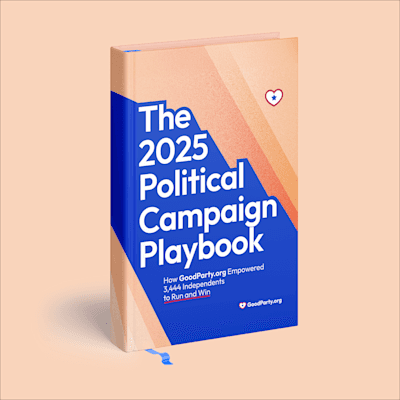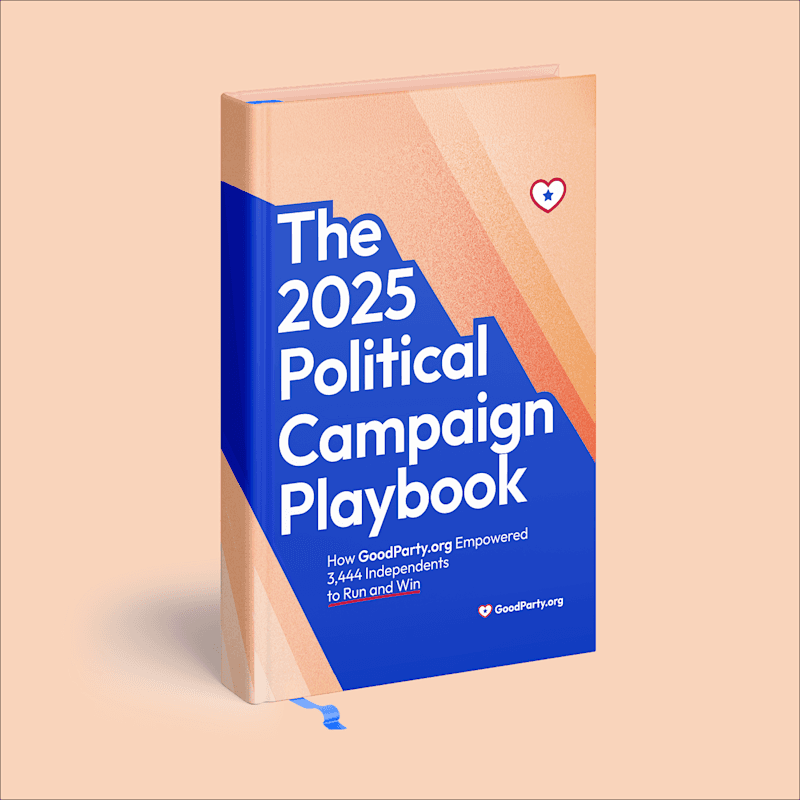
How to Decide Which of the Political Offices to Run For
Are you passionate about making a difference in your community and ready to dive into the world of politics? First off, congratulations! Deciding to run for office is a significant and commendable decision. However, one of the first questions you'll need to answer is: which political office should you run for? In this blog post, we'll explore the various offices and opportunities to serve, the factors you need to consider when determining the right office for you, and how GoodParty.org can help support your journey as an independent candidate for whichever office you choose.
Assess your passions and strengths
Before choosing a political office, consider what issues matter most to you and where you think you can make the most significant impact. Identify the strengths and skills you possess that would best position you to serve your community. Understand which type of role best aligns with your background and skillset. For example, if you have executive experience and posses strong management and decision-making skills, you might be drawn towards positions such as Supervisor, Mayor or even Governor. Others who are more interested in policy development and negotiation might be more inclined to run for legislative offices such as local council, state legislature or the US Congress. Perhaps you have a background in education and are passionate about improving local schools. In that case, running for the school board or city council might be a perfect fit.
Research the different levels of government
Understanding the various levels of government and their responsibilities will help you choose the right office to run for. Here's a quick overview:
Local government: City councils, school boards, and other municipal offices address issues directly impacting your community, such as zoning, public safety, and education.
State government: State legislators and governors create and implement laws affecting the entire state, including transportation, healthcare, and environmental policies.
Federal government: At the federal level, you have the U.S. Congress, which consists of the House of Representatives and the Senate. They craft and pass legislation that impacts the entire nation.
Leverage Goodparty.org's resources for independent candidates
Goodparty.org is an invaluable resource for independent candidates looking to break through traditional party lines and focus on issues that matter most to their constituents. They provide tools and support to help you build your platform, create a compelling campaign, and connect with voters who share your values.
Some of the resources offered by Goodparty.org include:
An online platform to showcase your campaign, platform, and ideas
Tools to help you connect with voters and gather support
Assistance with fundraising and campaign financing
Access to a community of like-minded independent candidates and supporters
Assess the time commitment
Different political offices require varying levels of time commitment. For instance, local offices like city council or school board may demand a few hours per week, while state or federal positions require full-time dedication. Consider your current personal and professional commitments to determine how much time you can realistically devote to your political aspirations.
Gauge the level of competition
Research the political landscape in your area and determine the level of competition for the office you're considering. Are there popular incumbents? Is the office in high demand? Assessing the competitive landscape will help you understand the challenges you may face during the campaign and the likelihood of success.
Seek advice from mentors and peers
Reach out to individuals who have experience in the political arena, either as candidates or campaign staff. They can offer valuable insights and guidance on selecting the right office and navigating the campaign process.
Use online tools to search for eligible positions
An example of an online tool you could use is BallotReady.org which is a valuable tool for individuals looking to explore their options in which political offices to run for. By visiting the website, users can access a wealth of information on various government positions at the local, state, and federal levels. The platform provides an easy-to-navigate interface that allows individuals to search for open positions within their region, understand the responsibilities associated with each role, and review the qualifications and requirements for each office. With the insights gained from BallotReady.org, aspiring candidates can make informed decisions about which political office best aligns with their skills, experience, and passions, ultimately helping them make a meaningful impact in their community.
In conclusion, determining the right political office to run for requires careful consideration of your passions, strengths, experience, and the level of commitment you can provide. By leveraging the resources and support provided by GoodParty.org, you can confidently embark on your political journey as an independent candidate and make a meaningful impact in your community.
Photo by Sora Shimazaki
Want to learn more? Take our free course on launching your first political campaign.

